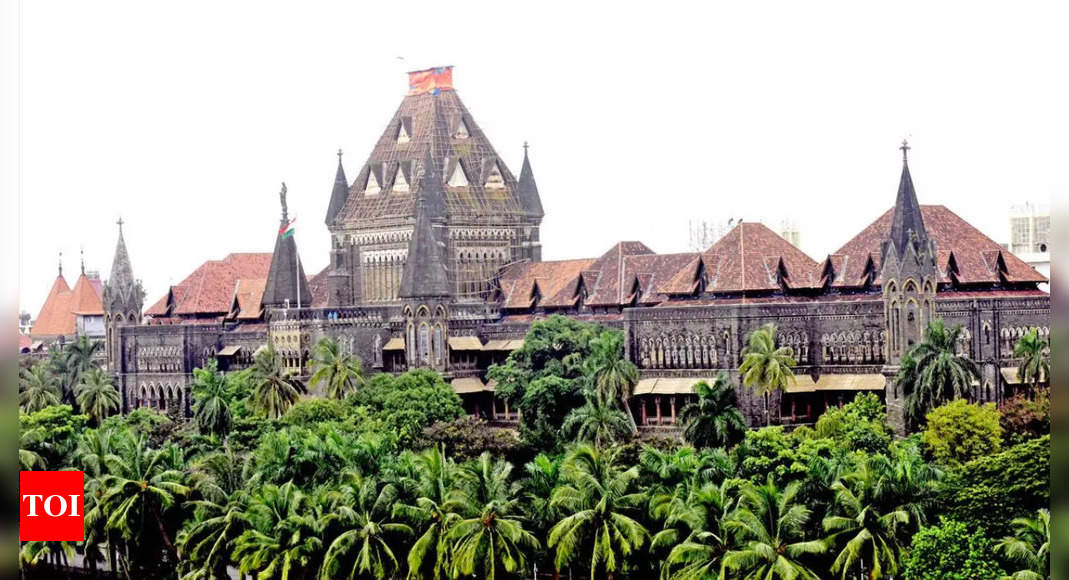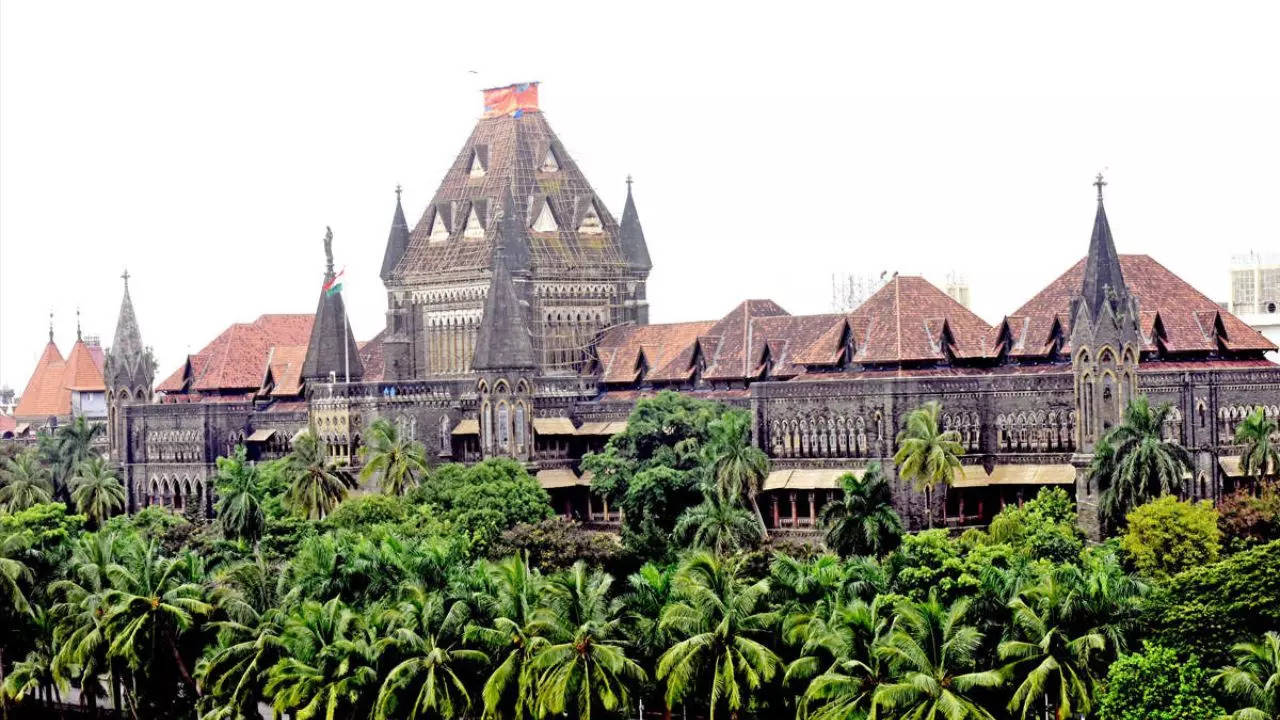[ad_1]
MUMBAI: The Bombay high court has said that several countries have reduced the age of consent for adolescents to enter into a consensual sexual relationship and it is high time our country and Parliament are also cognizant of the happenings around the world.
A single bench of Justice Bharati Dangre in a July 10 judgment expressed concern over the increasing number of criminal cases under provisions of the Protection of Children from Sexual Offences (POCSO) Act, where the accused are castigated even when the victims, being adolescents, maintain they were in a consensual relationship.
In India, age of consent has been increased over time, noted Justice Dangre with POCSO pegging it at 18, “probably one of the highest ages globally, as majority of countries have set their age of consent in the range of 14 to 16 years.’’
“Sexual Autonomy encompasses both, the right to engage in wanted sexual activity and right to be protected from unwanted sexual aggression. Only when both aspects of adolescent’s rights are recognized, human sexual dignity can be considered to be fully respected,’’ said the HC while setting aside a February 2019 conviction and 10 year sentence under POCSO, and acquitting a young man aged 25.
The girl was 17 years old and claimed the relationship was consensual and under the personal law was “capable of performing a nikah’’.
In India, defnition of “child” varies from statute to statute. POCSO criminalizes all sexual activities for those under the age of 18 years, even if the act was committed by consent, said the HC.
Justice Dangre called for a “balance to be struck’’ between protection of children against sexual abuse but said “age of consent has to be necessarily distinguished from age of marriage as sexual acts do not happen only in the confines of marriage and not only the society, but the judicial system must take note of this important aspect.”
She said protection of children should also “enable young people to extend their boundaries” and exercise safe choices.
“The penal approach towards adolescents’ sexuality has impacted their life to a barrier free access to sexual and reproductive health services. The criminalization of romantic relationship has overburdened the criminal justice system by consuming signifcant time of the judiciary, police and the child protection system and ultimately when the victim turns hostile by not supporting the charge against the accused…(resulting) in an acquittal,” the court said.
“The concern about the rising number of cases, where minor are punished under the POCSO Act are being expressed by various fronts in distinct proceedings before the Supreme Court, the High Courts of the country as well as the POCSO Special Court, where the POCSO cases are tried. Despite a clear stand being taken by a female in such an act, that it was a case of consensual sex, … the male stand convicted under the POCSO Act with a specific reasoning, being that POCSO Act was never intended to include consensual sex with the minor,’’ said Justice Dangre.
Under POCSO it would mean statutory rape if one is less than 18 and “legally too young to consent to the sex and,since, her consent is no consent in the eyes of law,” noted Justice Dangre even when a boy is 20 and the girl is a day shy of 18 “he would be found guilty of committing rape upon her, despite the girl clearly admitting that she was equally involved in the act.”
She said, “A case of physical attraction or infatuation always comes forth”, adding that India needs to see what is happening globally.
In a country like Japan, a movement supported by students is gaining momentum, noted the HC, adding “in this whole scenario, if a young boy is castigated for being guilty of committing a rape on a minor girl, merely because she is below 18, but an equal participant in the act, he would suffer a severe dent, which he will have to carry lifelong.’’
Special courts have no option to impose punishment lesser than the one prescribed under POCSO for penetrative sexual assault, the accused necessarily has to undergo the maximum punishment, said Justice Dangre holding that a question recently posed by the Madhya Pradesh HC referring to the injustice faced by adolescent boys, assumes great significance.
Given the provisions of POCSO and the legal inability of the minor even aged 17 to given consent, the HC said, ” This provision, though definitely intended to target sexual exploitation of children i.e. a male or a female, however, has created a gray area, as it has definitely resulted in criminalizing consensual adolescence/teenage relationship and after the POCSO Act raised the age of consent from 16 to 18, even in case of a consensual sexual activity, where one of the party is an adolescent and other a major, the act of the other party is liable for criminal action.”
What is age of consent around the world:
A single bench of Justice Bharati Dangre in a July 10 judgment expressed concern over the increasing number of criminal cases under provisions of the Protection of Children from Sexual Offences (POCSO) Act, where the accused are castigated even when the victims, being adolescents, maintain they were in a consensual relationship.
In India, age of consent has been increased over time, noted Justice Dangre with POCSO pegging it at 18, “probably one of the highest ages globally, as majority of countries have set their age of consent in the range of 14 to 16 years.’’
“Sexual Autonomy encompasses both, the right to engage in wanted sexual activity and right to be protected from unwanted sexual aggression. Only when both aspects of adolescent’s rights are recognized, human sexual dignity can be considered to be fully respected,’’ said the HC while setting aside a February 2019 conviction and 10 year sentence under POCSO, and acquitting a young man aged 25.
The girl was 17 years old and claimed the relationship was consensual and under the personal law was “capable of performing a nikah’’.
In India, defnition of “child” varies from statute to statute. POCSO criminalizes all sexual activities for those under the age of 18 years, even if the act was committed by consent, said the HC.
Justice Dangre called for a “balance to be struck’’ between protection of children against sexual abuse but said “age of consent has to be necessarily distinguished from age of marriage as sexual acts do not happen only in the confines of marriage and not only the society, but the judicial system must take note of this important aspect.”
She said protection of children should also “enable young people to extend their boundaries” and exercise safe choices.
“The penal approach towards adolescents’ sexuality has impacted their life to a barrier free access to sexual and reproductive health services. The criminalization of romantic relationship has overburdened the criminal justice system by consuming signifcant time of the judiciary, police and the child protection system and ultimately when the victim turns hostile by not supporting the charge against the accused…(resulting) in an acquittal,” the court said.
“The concern about the rising number of cases, where minor are punished under the POCSO Act are being expressed by various fronts in distinct proceedings before the Supreme Court, the High Courts of the country as well as the POCSO Special Court, where the POCSO cases are tried. Despite a clear stand being taken by a female in such an act, that it was a case of consensual sex, … the male stand convicted under the POCSO Act with a specific reasoning, being that POCSO Act was never intended to include consensual sex with the minor,’’ said Justice Dangre.
Under POCSO it would mean statutory rape if one is less than 18 and “legally too young to consent to the sex and,since, her consent is no consent in the eyes of law,” noted Justice Dangre even when a boy is 20 and the girl is a day shy of 18 “he would be found guilty of committing rape upon her, despite the girl clearly admitting that she was equally involved in the act.”
She said, “A case of physical attraction or infatuation always comes forth”, adding that India needs to see what is happening globally.
In a country like Japan, a movement supported by students is gaining momentum, noted the HC, adding “in this whole scenario, if a young boy is castigated for being guilty of committing a rape on a minor girl, merely because she is below 18, but an equal participant in the act, he would suffer a severe dent, which he will have to carry lifelong.’’
Special courts have no option to impose punishment lesser than the one prescribed under POCSO for penetrative sexual assault, the accused necessarily has to undergo the maximum punishment, said Justice Dangre holding that a question recently posed by the Madhya Pradesh HC referring to the injustice faced by adolescent boys, assumes great significance.
Given the provisions of POCSO and the legal inability of the minor even aged 17 to given consent, the HC said, ” This provision, though definitely intended to target sexual exploitation of children i.e. a male or a female, however, has created a gray area, as it has definitely resulted in criminalizing consensual adolescence/teenage relationship and after the POCSO Act raised the age of consent from 16 to 18, even in case of a consensual sexual activity, where one of the party is an adolescent and other a major, the act of the other party is liable for criminal action.”
What is age of consent around the world:
- Children in the age group of 14 are considered capable of giving consent to sex in countries like Germany, Italy, Portugal, Hungary etc. In London and Wales, the age of consent is 16.
- Among Asian countries, Japan has set the age of consent as 13.
- In Bangladesh, Section 9(1) of the Women and Child Abuse Prevention Act, 2000 define ‘rape’ as sexual intercourse with a woman, with or without her consent, when she is below 16 years of age.
- In Sri Lanka, the age of consent is 16. In comparison, as far as India is concerned, the age of marriage for male and female is fixed as 21 and 18 years as per Child Marriage Prohibition Act, 2006.
- The United Nations Committee on the Rights of Child (CRC), in General Comment No.20, with respect to the minimum age of consent for sexual intercourse, has urged the States to strike a balance between protection of children from sexual exploitation and abuse and in respect for their evolving autonomy
- Recently the Madhya Pradesh High Court requested the Central Government to reduce the age of the female to 16 and observed that the present age of 18 is disturbing the fabric of the society, as it is upon the adolescent’s choice.
[ad_2]
Source link











More Stories
We can’t wait to face India in the final: Pat Cummins | Cricket News
Railways plans 3,000 additional trains in next 4-5 years to minimise number of waitlisted tickets | India News
Faridabad: Man dies after ‘falling from hotel room window’ while partying with friends